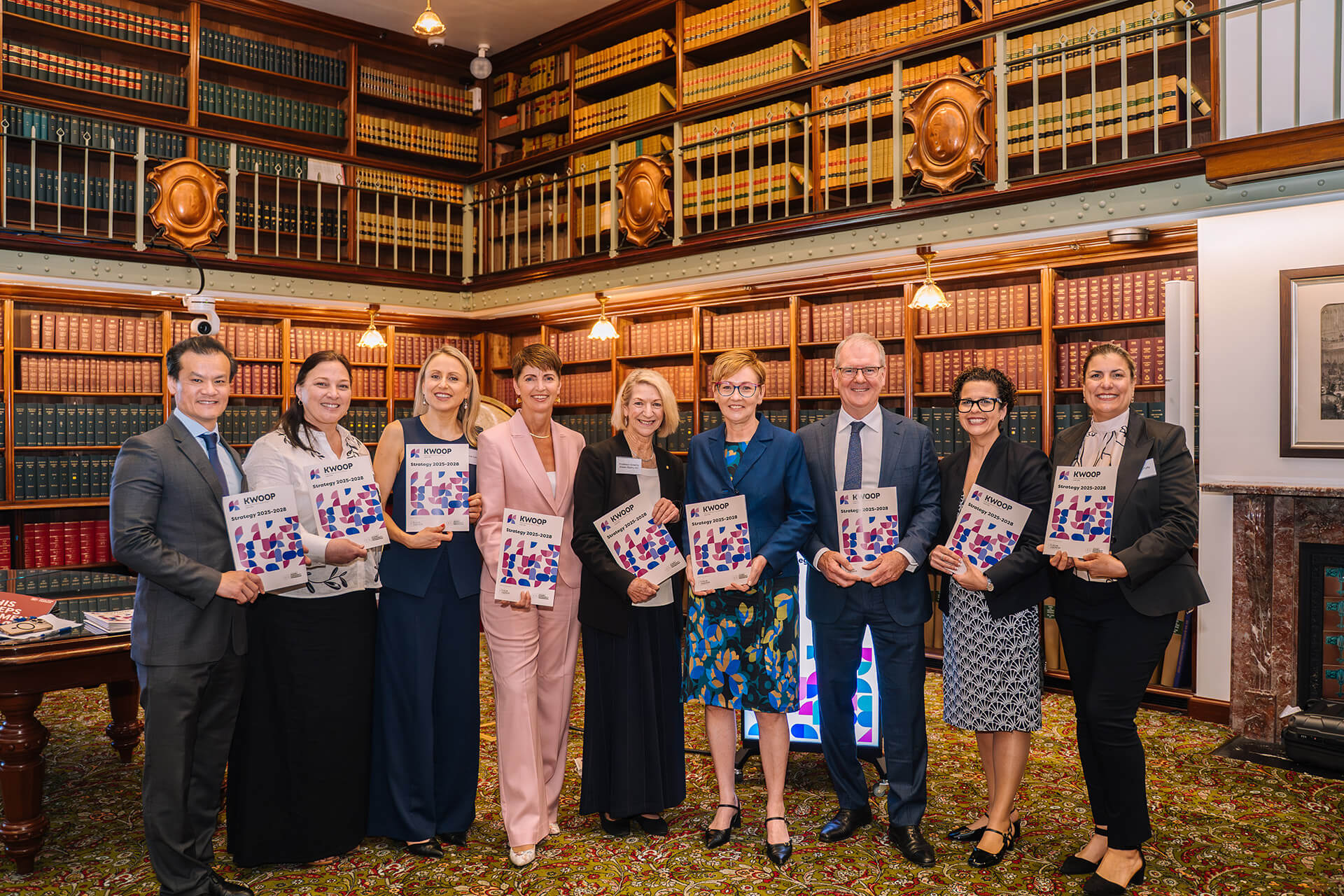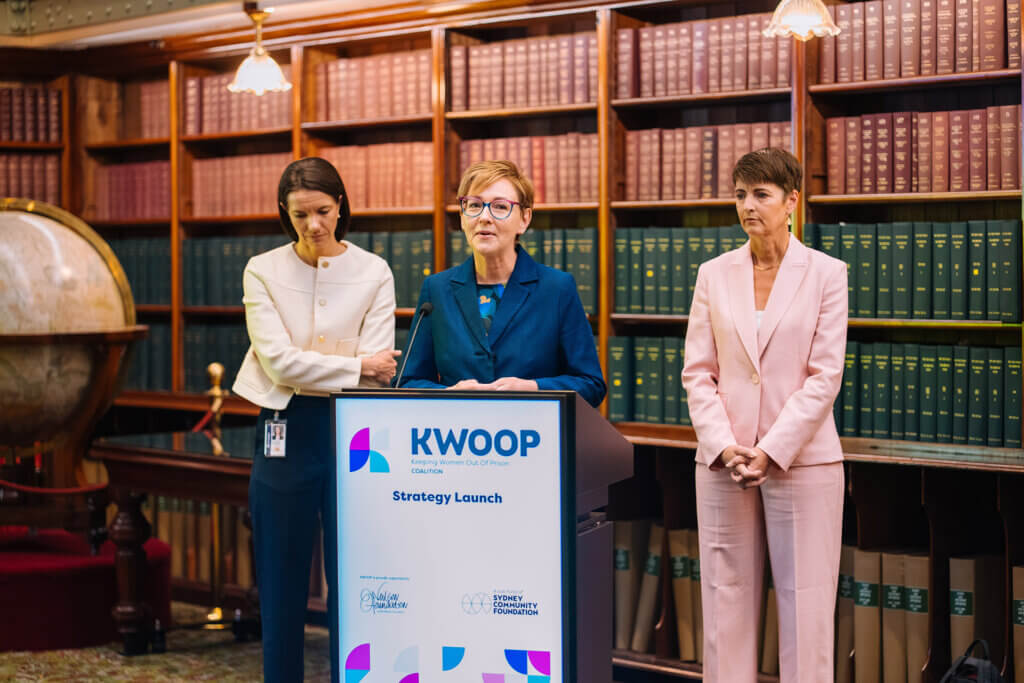Why Australia needs a strategy to keep women out of prison

Advocates, ministers and lawyers gathered in Sydney this week to back reforms that keep women out of prison and families together.
At Parliament House this week, the Keeping Women Out of Prison (KWOOP) Coalition launched a new strategy to cut the number of women in NSW prisons by addressing the systemic factors that drive incarceration.
“We know the drivers of women’s imprisonment are not about individual failings but about systems that punish poverty, trauma and disadvantage,” said Corinne Kemp, Program Director for the KWOOP Coalition. “This strategy maps a pathway to keep women out of prison and keep families together.”

KWOOP’s plan sets out three clear priorities: diversion and bail support, trauma-informed care in custody, and reintegration planning from the first day of a sentence.
The need is urgent. Female incarceration in Australia has risen sharply. Many women are held on remand without conviction, 60% of whom are mothers. First Nations women are disproportionately affected, making up 42% of the women’s prison population despite being just 3% of the state’s female population. For many, imprisonment is connected to experiences of gender-based violence, poverty and misidentification as offenders. The effects extend across generations, shaping the lives of children and families.
International reviews underline the gaps. Australia has climbed modestly in the Global Gender Gap Report 2025, but women’s economic security continues to lag, gender-based violence is at crisis levels and justice outcomes remain poor. The UN’s Universal Periodic Review has criticised the lack of protections for First Nations women, refugees and survivors of violence.
Community organisations are at the forefront of reform. The Women’s and Girls’ Emergency Centre’s From Now program offers an alternative to custody that allows mothers to remain with their children, while the Justice and Equity Centre is gathering evidence on the misidentification of women as offenders. The Refugee Advice & Casework Service’s Women at Risk program supports asylum-seeking women who have experienced violence, while Anti-Slavery Australia is pushing for stronger protections against modern slavery.

The common thread across these efforts is investment in evidence, coordination, advocacy and community capacity. These functions help move from isolated projects to systemic change.
“Community organisations can only do so much without sustained government commitment,” said Kemp. “Strategic investments in prevention offer real alternatives to our current approach.”

The challenge is consistency. Lowering the number of women in prison will require political will and sustained resources for community organisations. The KWOOP strategy shows what can be achieved when government, advocates and lived experience leaders work together. Whether such approaches can reshape the wider justice system is the question ahead.
Read more about KWOOP’s roadmap to reform: https://sydcf.org.au/wp-content/uploads/2025/09/KWOOP-Strategy-2025-2028-Final-Digital.pdf